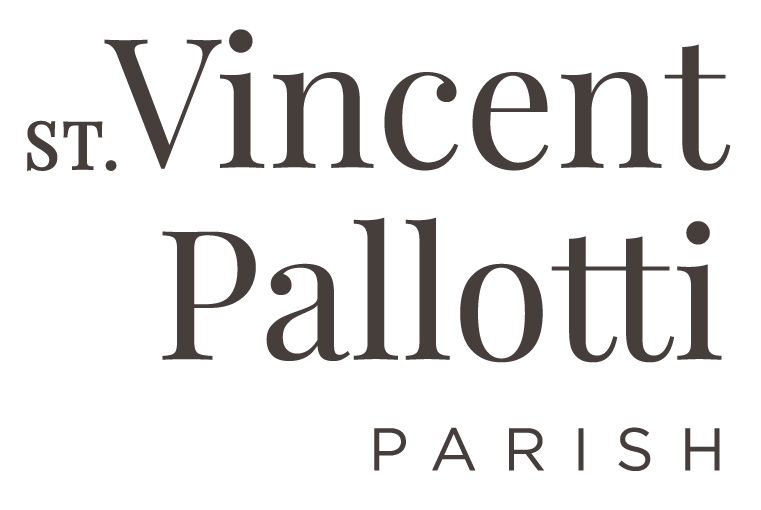Frequently Asked Questions
Archbishop Weisenburger has invited all the faithful of the Archdiocese of Detroit to participate in a prayerful and Spirit-guided process of restructuring our parishes and ministries. This initiative is not merely an administrative adjustment, but a moment of ecclesial renewal — an opportunity to discern together how the Holy Spirit is calling us to a renewed vision for parish life and priestly ministry that will ensure a vibrant and sustainable Catholic presence across the Archdiocese for generations to come.
This process is guided by three foundational pillars:
Vibrant Parishes:
Each parish is called to be a living heartbeat of faith — a place where the faithful encounter Jesus Christ, grow in discipleship, and form authentic Christian community.
Flourishing Priests:
Our priests are at the heart of parish life. They must be supported, sustained, and empowered to live their vocation fully — preaching the Gospel, celebrating the sacraments, and shepherding their people with pastoral charity and joy.
Mission Ready:
As a missionary Church, we are sent to proclaim the Gospel beyond our parish walls — in our homes, schools, workplaces, and neighborhoods. By wisely realigning our clergy, ministries, and resources, we will strengthen our capacity to bring Christ’s love to the world with renewed vigor and purpose.
Why is restructuring necessary?
Like many dioceses across the country, the Archdiocese of Detroit is experiencing significant demographic and cultural shifts that are reshaping parish life. Over the past several decades, changes in religious affiliation and population patterns have left us with more church buildings than our current Catholic population requires. From a historic peak of approximately 1.5 million Catholics, our local Catholic population now numbers around 900,000. During the same period, sacramental participation—including baptisms, first Communions, and marriages—has declined considerably.
At the same time, the number of priests available for parish ministry has continued to decrease. While we are blessed with seminarians in formation and the assistance of international and religious-order priests, many of our pastors remain stretched thin, often carrying heavy administrative burdens that limit the time they can devote to pastoral ministry. Most of our active priests are now over the age of 50, and projections indicate that by 2029 we will have fewer than 165 priests serving in parish ministry.
In response, this two-year process of restructuring seeks to prayerfully discern the best path forward for every parish community in light of these realities. The process will be guided by comprehensive data—financial and sacramental records, demographic trends—and, most importantly, by the insights and feedback of the faithful across the Archdiocese. All of this will be brought to prayer and communal discernment as we strive to build a local Church of vibrant parishes and flourishing priests, fully equipped to carry out the mission Christ has entrusted to us.
What entities are involved in restructuring?
All parishes, the Archdiocesan administrative offices, and priest assignments will be reviewed during this restructuring process.
*Catholic Schools, Sacred Heart Major Seminary and affiliated organizations such as Catholic Charities of Southeast Michigan are not included in the formal restructuring process. Some of these entities, such as Catholic Schools, are undergoing separate strategic planning processes.
Are all parishes involved in the restructuring process?
Yes. Every parish will be evaluated using the same criteria, although the specific benchmarks will vary depending on factors such as geographic location (urban, suburban, rural).
Are parishes with schools exempt from the process? What about parishes with cemeteries?
No. All parishes will be part of this process—including those that have a school as well as those that have cemeteries.
Who is leading the restructuring process?
Archbishop Weisenburger is leading our process of restructuring with the support of priests, staff in the Archdiocesan Curia (central administrative offices), and an advisory group representing the geographic, ethnic, economic, and social diversity of the Archdiocese of Detroit.
How long is the restructuring process? What are the major milestones?
The entire process is a little under two years long, concluding on June 30, 2027:
- Summer and Fall 2025: Preparatory work begins
- January 2026: Priests come together to develop draft models for each parish
- Spring 2026: Parish listening sessions held and online feedback collected
- Summer 2026: Feedback reviewed and model refinement happens
- Fall 2026: Archbishop Weisenburger’s discernment
- Winter 2027: Final plans announced
- July 1, 2027: Implementation begins
What is the expected outcome of the restructuring?
This process of restructuring is an opportunity for all of us to come together to shape the future of the Archdiocese of Detroit, ensuring that there is a vibrant Catholic presence in every corner of southeast Michigan for generations to come. Our three-fold goals are to have: 1. Healthy and flourishing priests, 2. Vibrant parish communities, and 3. Mission-ready and financially sustainable parishes to evangelize today and years into the future.
What will happen to my parish? Will it close?
We anticipate that every parish in the Archdiocese will become part of a “pastorate,” a grouping of one or more parishes led by a single pastor and leadership team. Each pastorate will have one pastor and usually one or more parochial vicars (often called associate pastors). Any decisions about parish mergers or church closures will be made after a careful review of quantitative and qualitative data about each parish (including financial and sacramental trends and projections; the vibrancy and vitality of parish life and activity; and demographic data about the geographic area of the parish and surrounding area), as well as all the feedback from priests and parishioners collected during parish listening sessions.
What will happen to my priest? Will he be reassigned?
As part of the restructuring process, every priest is being asked to complete a leadership inventory that includes questions about the priest’s current assignment, his gifts and aptitudes, his preferences for future assignments, any priests with whom he’d like to serve, and the type of ministry to which he feels called. Archbishop Weisenburger and the Priest Missioning Team—priests elected to represent various age groups among the clergy—will use this feedback, along with other pieces of data, to determine the best assignment for each priest to help him flourish in his ministry. While a large-scale reassignment of priests should be expected, each priest and his assignment will be considered individually. Specific details about any new priest assignments will be announced in early 2027.
How is this different from Families of Parishes? Are those going away?
A pastorate is a grouping of one or more parishes led by a single pastor and leadership team, whereas most Families of Parishes are led by an in solidum team of pastors with multiple leadership teams. The pastorate model allows for greater unity in vision and streamlined administrative duties, giving both the pastor and any parochial vicars (associate pastors) more time for pastoral ministry.
For now, parishes will remain in family groupings (which you might know as “a family of parishes” to continue their day-to-day ministries. Each parish, however, will be considered individually as part of the restructuring process, ensuring decisions are made to best suit the unique needs of each community. Eventually, the family groupings will be retired and replaced by the results of our shared discernment process.
From the beginning, Families of Parishes was a short-term solution to immediate needs brought to the fore by the COVID-19 pandemic. Our current restructuring process is more comprehensive and will lay the foundation for a sustainable Catholic presence in every corner of the Archdiocese of Detroit for generations to come.
Are we the only arch/diocese going through this restructuring process?
Not at all. The cultural and demographic changes that have prompted this restructuring are not unique to southeast Michigan. Over thirty dioceses across the United States have or are currently undergoing similar restructuring processes.
How can I learn more about the restructuring process?
Please regularly visit restructuring.aod.org to learn more about the restructuring process. At each stage, new information will be added that will help you stay informed. Your parish will also regularly share information specific to your local community.
How can I get involved?
In the spring of 2026, all Catholics in the Archdiocese of Detroit will have the opportunity to share their feedback on various drafts of restructuring plans. Each parish will host two listening sessions at which you can learn more about the plans and share your comments. In addition, there will be an online option for additional feedback and anyone unable to attend the listening sessions. Every piece of feedback will be received, discerned, and considered as a valuable contribution to this process.
PRAYER FOR
ARCHDIOCESAN RESTRUCTURING
Come, Holy Spirit.
Make your presence known
as we restructure the parishes and ministries of our archdiocese.
Be our light on the path we walk together.
Help us hear your voice in the quiet of our own hearts, in the wisdom of others, and in the world around us.
We know you are with us in every step of the process.
Give us clarity, understanding, and direction.
In all things, help us share the light of your love. Amen.
Ste. Anne, pray for us.
Blessed Solanus Casey, pray for us.
Mary, Mother of the Church, pray for us.

